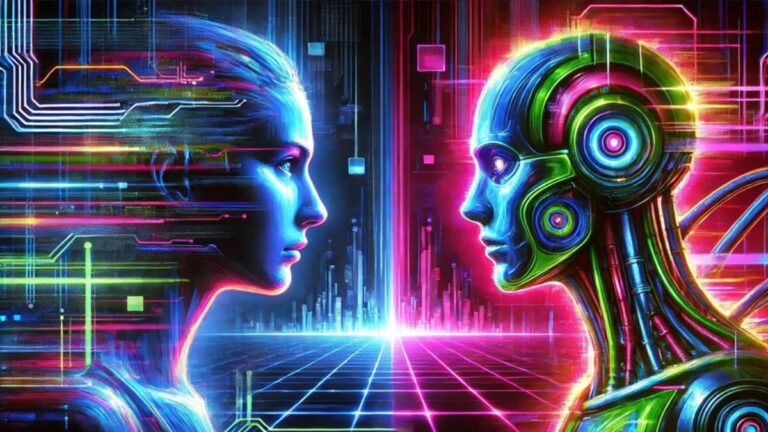Artificial Intelligence (AI) is not just a technological novelty, but a real revolution that will completely transform the job market in the coming decades. We are already seeing how AI helps automate routine processes, improves customer service, and accelerates scientific research. A prime example of how technology is changing industries is the Pari Match platform, where AI is actively used for personalizing user experiences and optimizing business operations. But how will these changes affect the professions we know today? What will happen to jobs, and what opportunities and threats will arise for workers and employers? In this article, we will explore how artificial intelligence will impact the future of work.
How AI is Already Changing the Job Market
Today, AI is being actively used in various fields, and its implementation is not limited to industry giants like finance or manufacturing. It helps improve disease diagnosis in healthcare, optimize logistics, solve problems in agriculture, and even create artificial works of art. Wherever there is data, AI finds its application. It is especially active in automating routine tasks.
A good example is the automation of work in call centers, where chatbots and voice assistants replace part of the work done by employees. In manufacturing plants, robots now perform tasks that previously required human involvement, which reduces costs and increases productivity. However, these examples are increasing, affecting other areas where humans once worked exclusively.
New Professions and Skills in the Age of AI
So, what does the future hold? One of the most prominent aspects that will define the future of work is the growing demand for new professions and skills. AI is creating new opportunities for those who know how to work with technology.
- Machine Learning and Data Analytics Specialists
Today, many companies already recognize the importance of data and the need for specialists who can work with large volumes of information, process it, and apply it for strategic decision-making. Machine learning specialists, data scientists, and data analysts are in demand, and this demand will only grow. These workers will be tasked with creating algorithms and improving AI models. - AI Developers and Engineers
Machine learning, neural networks, and artificial intelligence all require the creation of complex algorithms and maintaining system functionality. This opens up new horizons for engineers who will be able to design and optimize AI systems. - AI Ethics Consultants and Specialists
With the rise of AI, there is also a need to ensure its ethical use. How can we avoid bias in algorithms? How can we ensure that AI works for the benefit of humanity? Ethics specialists will be necessary to create and implement ethical standards in AI fields. - Cybersecurity Specialists
As the number of AI technologies grows, so does the need to protect data. Cyber threats are becoming more complex, which means that security specialists will be in higher demand than ever.
What About Traditional Professions?
The greatest threat from the introduction of AI is the replacement of traditional jobs. Already, automation threatens several sectors where workers perform routine, repetitive tasks. For example, call center operators, taxi and truck drivers, assembly workers, and conveyor workers may face job cuts.
However, it is important to note that AI and automation do not simply “take away” jobs; they also create new opportunities. Professions that require creativity, emotional intelligence, and interpersonal skills, such as psychology, education, and marketing, will be less susceptible to automation. AI cannot fully replace human empathy, intuition, and the ability to make complex decisions based on multifaceted social and ethical aspects.
How to Adapt to Changes?
Adapting to changes in the job market will require workers to learn new skills. This applies to everyone, from manual laborers to office employees. It will be important to learn how to work in new conditions, master AI-related skills, interact with machine learning, and analyze big data.
- Continuous Learning and Reskilling
It is crucial to prepare for continuous learning. Workers must be ready for the fact that in a few years, their current profession will look very different from today. Education in technology, analytics, and IT will be key to success. - Workplace Adaptation
For employers, it is important to invest in employee training and equip them with the necessary tools to work with new technologies. Workplaces must be adapted to new conditions, which will allow AI and technologies to be used most effectively.
Conclusion
The future of work is a combination of opportunities and challenges. Artificial intelligence is not only changing the job market but also creating new prospects for people who are willing to adapt and learn. Despite concerns about job loss, AI provides incredible opportunities to create new professions that will require a high level of skill and technological expertise.
Ultimately, the key to successful adaptation is continuous learning, readiness for change, and the ability to harness the opportunities that AI offers. The future of the job market is already here, and those who can keep up with this progress will come out ahead.

